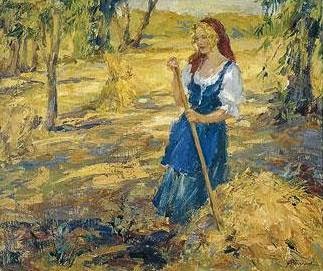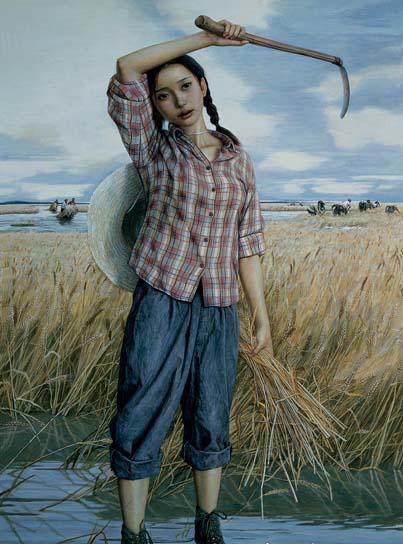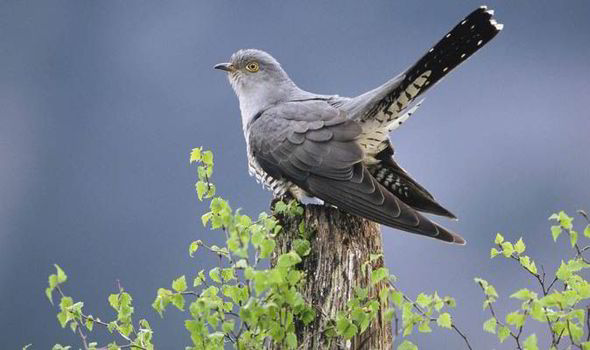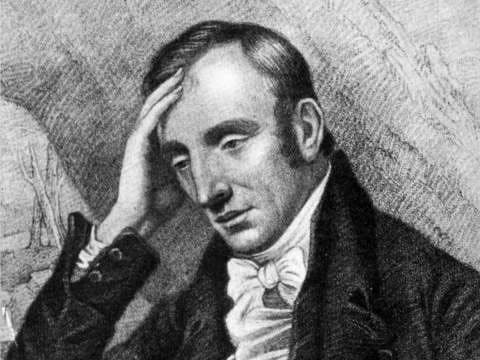In this poem, the poet takes up Nature as the greatest teacher possible. Lucy had grown amidst the beauty of Nature for three years when it was decided that Nature would take up the responsibility of her education. She seems to be the most beautiful entity on earth, and Nature proclaims that Lucy will be the finest flower that will eventually bloom and blossom into a Lady. Lucy will be created in the image of Nature, and her well-being will be of immediate attention to Nature.
Three Years She Grew in Sun and Shower: Summary
Nature then goes on to explain and expound how she will bring up Lucy. Nature will teach her to act in impulse and enunciate that impulse must sometimes be regulated with proper law convictions. With Nature, Lucy will take a trip through rocks and plains, learning how to adapt to different situations in life. Through earth and heaven, forest and garden, Nature would accompany Lucy where she would feel the governing laws of nature. She would thereby gain the power of inspiration and self-control to govern her life, and that would mold Lucy into a perfect being.
The third stanza elaborates her vital, overflowing energy and her equally spontaneous calm and tranquility. Lucy will be as frolicsome as a deer with wild glee and untamed joy. She would possess the vital strength and energy to climb mountains or go upstream a river, and from the frantic merriment, she would eventually learn the lessons of life. In contrast to the playfulness, Lucy will also learn the significance of quietude, and she will come to possess the knowledge that eventually soothes souls. She will embrace the glory of silence and seclusion and calmness of being, which would add up to her prosperous nature.
The fluffy clouds will lend themselves as her pillow, and in their softness, she would solace. Even a willow will bend to embrace a girl like Lucy, and she will eventually learn the virtue of modesty. She will be perfected into a humane form, and in moments of turmoil or a storm, Lucy will be filled and fulfilled with politeness, decency, propriety, poise, and charm. She will become the epitome of well-being and will be overflowing with sympathy and empathy bestowed with the ability to look into the human condition. She will learn to be graceful both in the face of storm and silence.
The stars will be her guide and be endearing to Lucy. Lucy will have the privilege to peep into the secrets of Nature that are left hidden. She will gather the grace of movement and stillness from the dancing stream of water. The beauty of sound generated by the rapidity of passing water would mold into the beauty of Lucy’s face. She shall bear Nature on her face. The beauty will be born with a soft murmuring sound that beautifies her and makes her face adorable.
The vital, invigorating, and lovely feelings would be Lucy’s constant company that will mold her with grace and devotion till she attains lofty spiritual heights. She will be an incarnation of an ideal state in relation to mind and body. The docile girl will grow eventually to attain womanhood. Her virgin body will attain a state of physical and spiritual enlightenment. She will be ripe with nature’s bounty having the prospect to procreate. Nature will be her sole proprietor and vows to impregnate her with thoughts divine till they live together in the blissful lush green valleys and wooded valleys. Nature would nurture Lucy’s thoughts to maturity.
In the last stanza, Nature declares that her work is done and she has executed her promise as Lucy has grown to become an idolatress, no longer needed on earth. The poet now intervenes and states that Lucy has grown to become Nature and thus has died. She has left the poet to experience a vacancy of emotions and memories to rejoice upon. The poet mournfully states that her death has left a barren land, a calm and quiet scene of vacuity. The poem ends with a declaration that Lucy is lost forever, leaving behind a trail of memories.
Three Years She Grew in Sun and Shower: Analysis
Three years she grew in the sun and shower is a poem composed in 1798 by the English poet William Wordsworth and first published in the Lyrical Ballads anthology. It deals with the notion that Nature is the greatest friend, philosopher, and guide. With the appreciation of Nature, one is bestowed with the bounty that Nature contains.
The poem is composed of seven six-line stanzas that each having an ‘aabccb’ rhyme scheme. This poem is included in the ‘Lucy series,’ where the identity of Lucy is dubious and indefinable. She seems as elusive as Nature itself. Nature is the womb of motherhood and the phallus that leads to both creation and destruction of mankind, and from this womb, a Lucy must be born, and here she must die. With her death, the poem becomes an elegy where Wordsworth mourns the departure of a beloved from earthly bounds.
The poet is in both awe and admiration for the exceedingly beautiful Lucy whose well-being has been constructed by the virtues of Nature. Wordsworth was a believer in pantheism, a doctrine that identifies God with the universe or regards the universe as a manifestation of God. And here, Nature is equated with God, and Lucy is bred in the image of God- the highest possible state of satiation or spiritual transcendence one can achieve.
Lucy had the freedom to flourish for three years until she was taken up by Nature to prune her into a well-bred woman. It seems Lucy’s radiating beauty had surpassed earthly binaries, and therefore Nature decided to mold her into an image of perfection where beauty and truth meet. Lucy seems to have been initially separated from Nature, and to get reunited, she must die in Nature, and we question the very earthly existence of her character. It is plausible that Lucy is growing in her death in a state of transcendence. Death is not an end but a culmination.
The poem progresses through antithetical ideas, paradoxically bringing into harmony the polarities in the school of Nature. Proclaiming that Lucy will eventually grow to become a deity, Nature enunciates that she will be trained by both “law and impulse.” It is the primeval impulse of instincts that often resurfaces in man, and it needs to be tamed by the sobriety of the intellect. The inherent impulse needs to get channeled through the laws of society to achieve harmony, however dubious it might be. Nature proclaims herself to be the breeding ground of perfect behavior that will eventually mold Lucy into a being more than human. She would eventually get the benefit of venturing into and exploring both the “rock and plain,” she will as if have access to the dome of the universe where reaching the horizon will no more be a distant goal. Lucy will have the knowledge of “earth and heaven” of Purgatory and Paradiso to contemplate on the dichotomies contained in man. She will be both wild and tame in “glade and bower.” She will be the site where the forest of Experience and garden of Innocence meets. And at the end, she will learn “kindle and restrain,” the spontaneous overflow of powerful feelings to be held hostage by notions of reality.
The poem is constructed in the tradition of epithalamia, where Lucy is wedded to Nature, and the prospect of birth resides in her ascendancy. The fruition of fertility is undercut by elegiac overtones where the earthbound poet is bound to mourn the loss of human-lover. The relationship between the physical and the metaphysical is highlighted through the use of contradictory ideas. The earth-bound can only have an approximation of the beauty which is indistinguishable from truth.
Lucy’s journey with Nature and amidst Nature is a Pilgrim’s Progress of the soul from the darkness of ignorance to the light of knowledge. She is blessed with the ability to penetrate deeper into the laws of nature to discover the elixir of life. For her, ripeness is all as she imbibes the bounties and divine blessings of nature. She eventually gathers grace of divine dignity, ready to become the bright star with the ability to float in the ethereal nest of heavenly bliss.
It is only in the final stanza that the poet interferes with the knowledge of binaries of physicality. He mourns the death of Lucy, yet he does not grieve, for he realizes that with the cessation of the fleshly screen, Lucy has got united with the only ontological reality called Nature. The container called Lucy has met the content called divinity. Fragments of Lucy are left behind in the form of memories for the poet to pick them up and realize the formative influence of nature in human life on behalf of us. It is in the glory of the higher reality that we must indulge ourselves.
I hope you enjoyed going through the Three years she grew in sun and shower: Summary and Analysis. You can also refer to Three Years She Grew in Sun and Shower: Themes.
Some online learning platforms provide certifications, while others are designed to simply grow your skills in your personal and professional life. Including Masterclass and Coursera, here are our recommendations for the best online learning platforms you can sign up for today.
The 7 Best Online Learning Platforms of 2022
- Best Overall: Coursera
- Best for Niche Topics: Udemy
- Best for Creative Fields: Skillshare
- Best for Celebrity Lessons: MasterClass
- Best for STEM: EdX
- Best for Career Building: Udacity
- Best for Data Learning: Pluralsight












